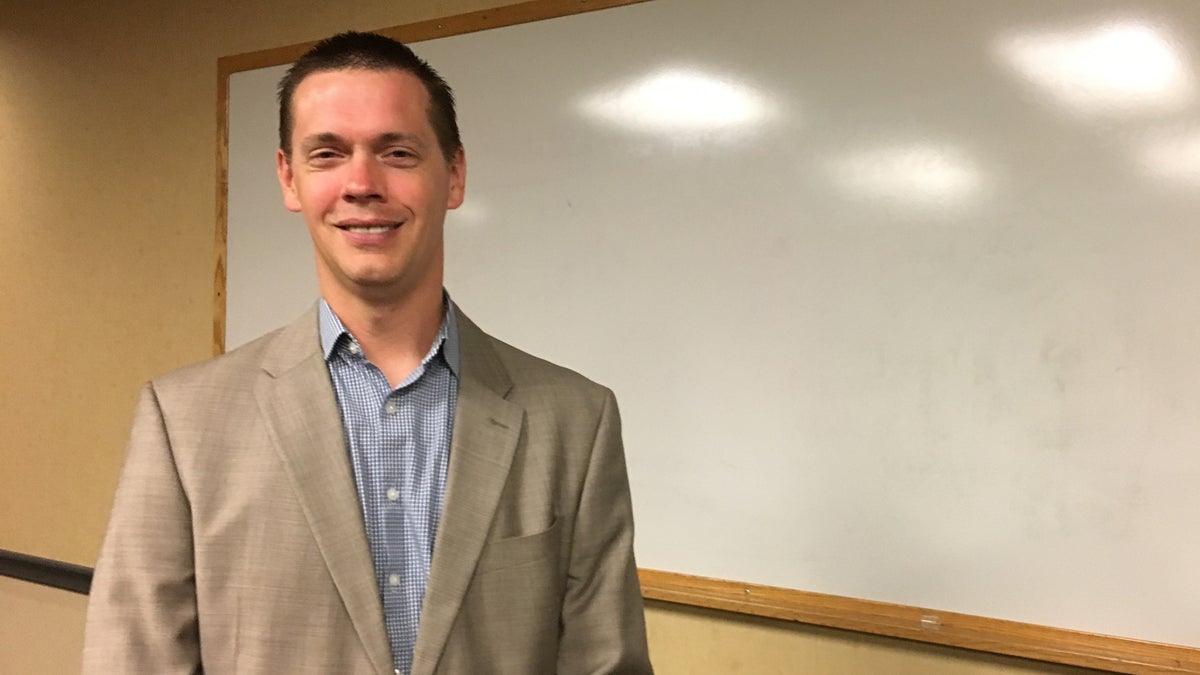Behavioral health experts say depressed kids often reach out but are not heard

Matthew Wintersteen after giving a talk about youth suicide (Anne Hoffman for NewsWorks)
In recent months, three Philadelphia children died by suicide. The city’s Department of Behavioral Health and Intellectual disAbility Services hosted an event meant to help those who work with kids most at risk.
Anyone can be an agent of change in a young person’s life. That’s the message the city’s Department of Behavioral Health wants educators, counselors and anyone who works with kids to keep in mind.
“If somebody comes to you, again you’re the history teacher and says “I’m struggling,” if your first impulse is to say “hold on, let’s go get the counselor,” the problem is you’ve said “we can’t talk about it,'” said Matthew Wintersteen, a clinical psychologist who teaches at Thomas Jefferson University.
And it’s natural that someone would react that way because of stigma, said Kamilah Jackson, with children’s services at The Department of Behavioral Health.
“It’s not sort of a general experience that people feel equipped to address. We feel that people don’t know enough about that— because our society doesn’t value mental health as a serious health issue,” she said.
The problem with that is that not reaching out or following up can have dire consequences if a young person is suicidal.Wintersteen said too often, adults don’t make enough space for a kids’ experiences, or even take them at their word.
“Our job is really to talk to them and listen to them, and not just simply minimize it and not try to solve the problem by telling them what to do,” he said, acknowledging that adults are usually coming from a good place.
Bruce Harnett, who does mental health assessments for public schools, said the talk helped him identify warning signals a little more quickly. They could be prolonged emotional distress and talking about suicide.
WHYY is your source for fact-based, in-depth journalism and information. As a nonprofit organization, we rely on financial support from readers like you. Please give today.

